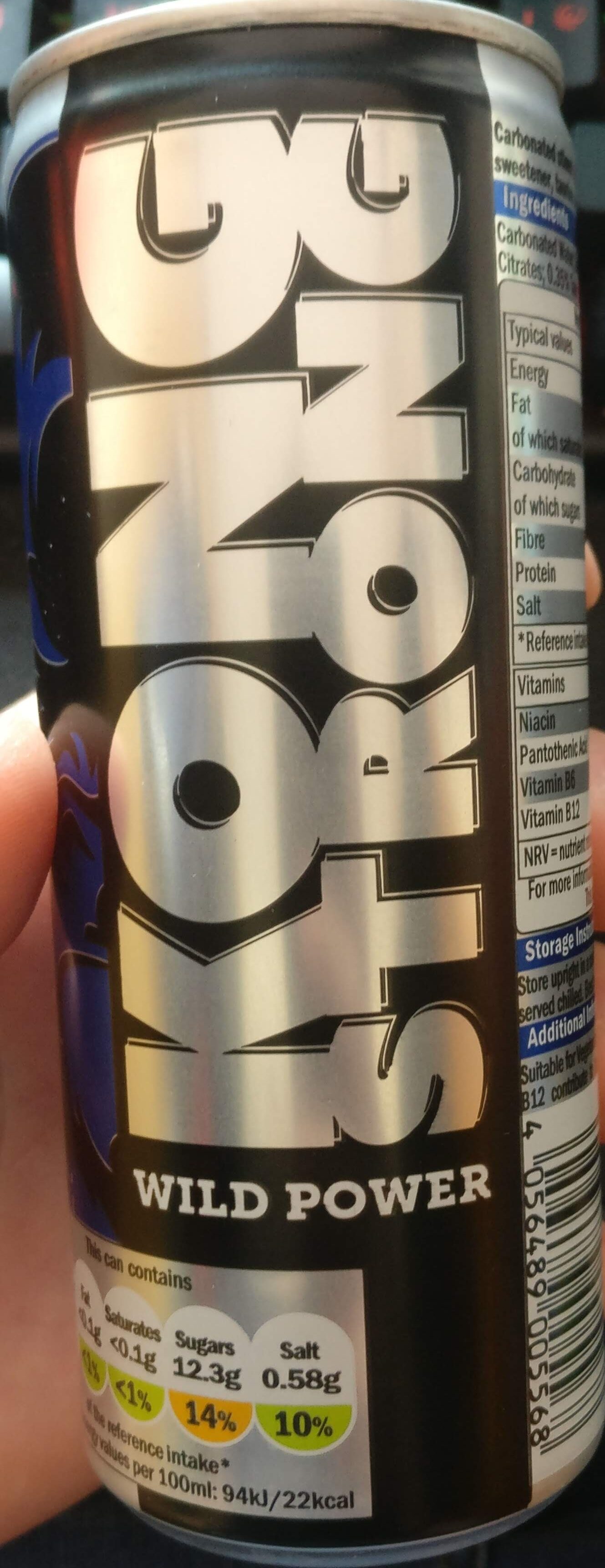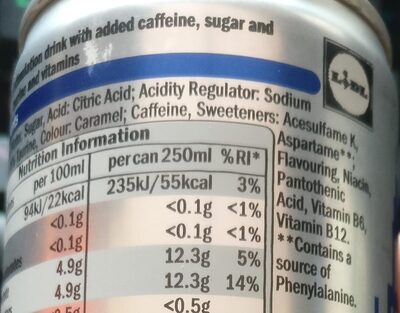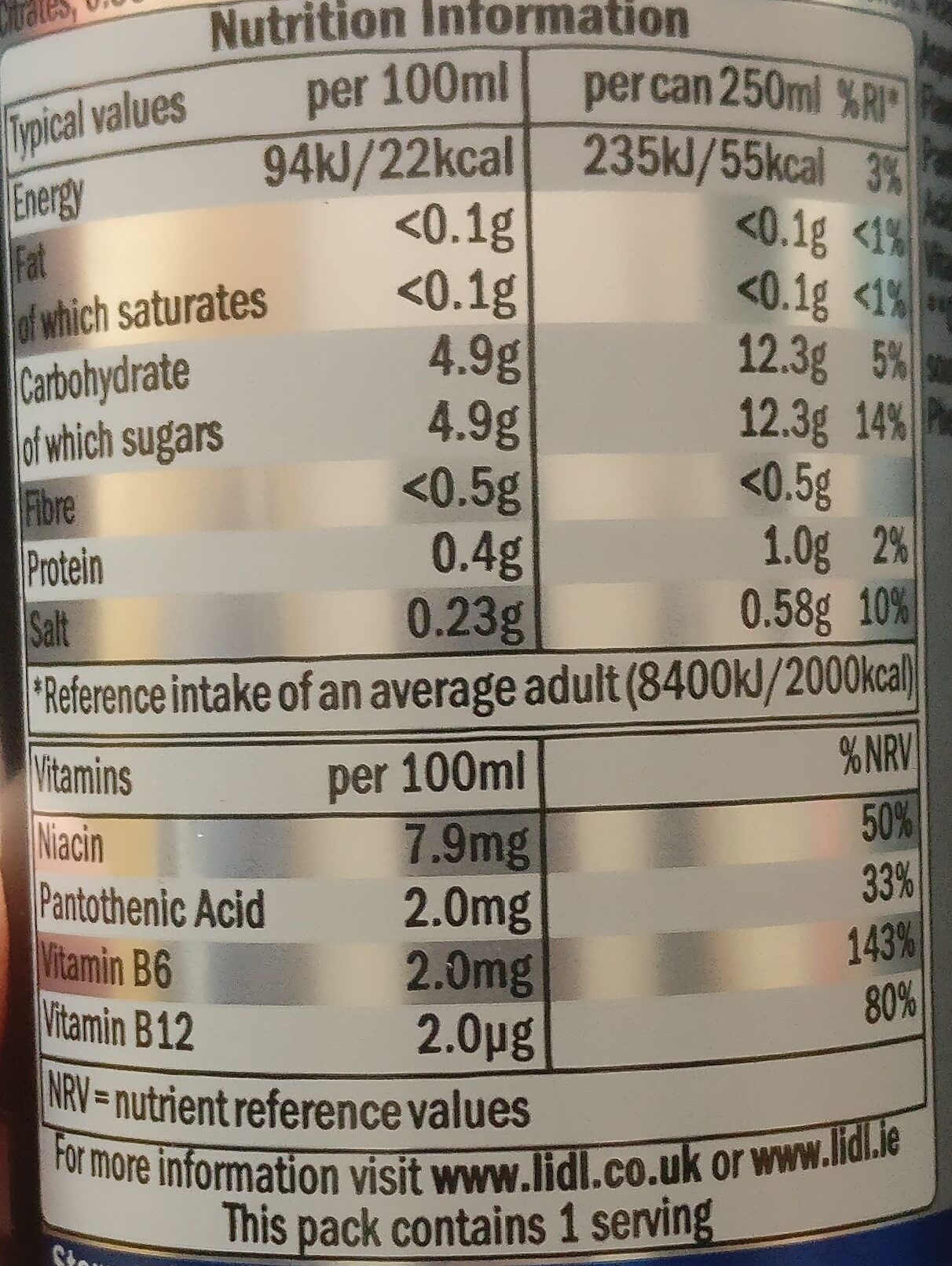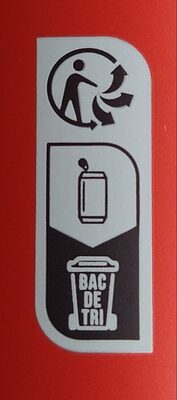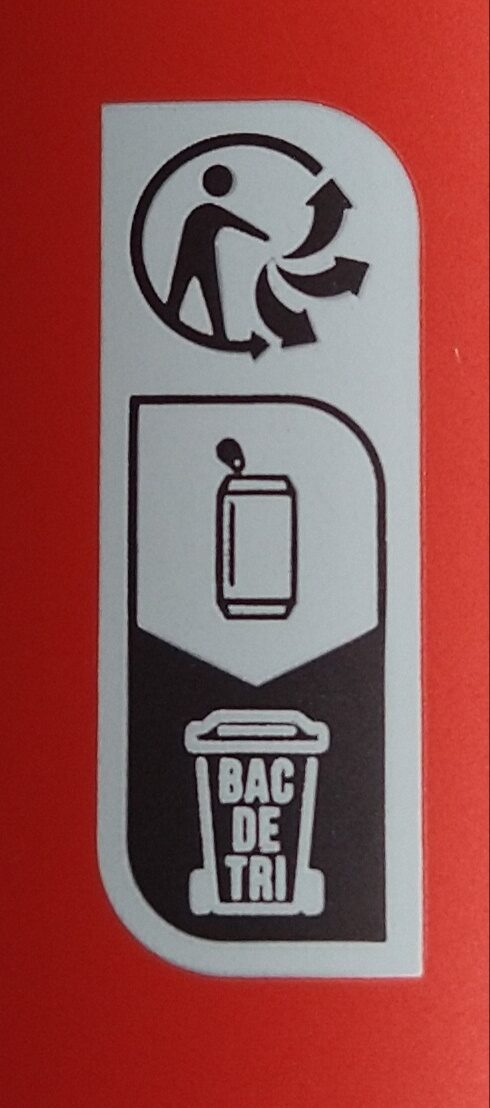Kong Strong - 250 ml
Barcode: 4056489005568 (EAN / EAN-13)
Common name: Energy Drink
Quantity: 250 ml
Categories: Beverages, Energy drinks
Labels, certifications, awards:
Contains a source of phenylalanine, Triman
Origin of ingredients: Unspecified
Stores: Lidl
Matching with your preferences
Report a problem
Data sources
Product added on by kiliweb
Last edit of product page on by mismer.
Product page also edited by bugmenot, ceyl, dagayveggi, date-limite-app, desan, duhowpi, emin, grumpf, halal-app-chakib, inf, meganuggetts, openfoodfacts-contributors, packbot, roboto-app, scanbot, thaialagata, yuka.R2F4YVQ0VUJoT0lvZ3NBNTNVdnJwTjkzeEtHU1IweXpMUHNTSVE9PQ, yuka.SGFJbVNKMFBwOVVoby9Fajl5bnJ3WTVGN2NhYkJYbm1EUGN2SVE9PQ, yuka.ZVpFakNvRXJoY2Mydk1BVC9EenUvUFV0OXJid1ZtaTFOK3M3SUE9PQ, yuka.ZnZ3ZE9iaFJuUHNScFBjTTdEbnR4dWx5d0xXNFJIR3lJY2tkSVE9PQ, yuka.sY2b0xO6T85zoF3NwEKvlhJOScb0vAzuFhHRi22Lmd2WLL3FYstNyND0EKs, yuka.sY2b0xO6T85zoF3NwEKvlhZgXMTz_yLbLjPUxBag78uTd8TqY41zvaPbGao, yuka.sY2b0xO6T85zoF3NwEKvlktodd_z-Q_cKQbRu0aymumXK5baXPpA5pLab6s, yuka.sY2b0xO6T85zoF3NwEKvll4YSYOChxzbPRbVp3ea-MzQKsC4fYxw5dbTEKs, yuka.sY2b0xO6T85zoF3NwEKvllBmYsiBniifOwHklWywwsiqJLLTMOpLztfhHKo, yuka.sY2b0xO6T85zoF3NwEKvllIeC__lvhzZKU3guRbQ-9CUNMPCZvFX8qqrGao, yuka.sY2b0xO6T85zoF3NwEKvllN5Y9qBvzTrDhHkq0GX5OfTNYfkbfwuw9ngH6o, yuka.sY2b0xO6T85zoF3NwEKvllwXDsj8vB_nJ0LlkEna--20B5_HedRM26KkDqs, yuka.sY2b0xO6T85zoF3NwEKvlm18CeTUgWvoNA3hvXWF_teKB5XqSIt-4pnELas, yuka.sY2b0xO6T85zoF3NwEKvlm1JcsvnqT2YNyXTwGLU5IaqCaX5eNcp5ofEOKs, yuka.sY2b0xO6T85zoF3NwEKvlmAWcsfxiwr7ZxDjiUfV5PeqcoLoR_p4uavjb6o, yuka.sY2b0xO6T85zoF3NwEKvlmoWafGGpDn4bTj5hm6H4eqKMZbNfdEix4L0Nqg, yuka.sY2b0xO6T85zoF3NwEKvlmxgUdv-iWzjDBzTvR2yl9ShB7HXPNxew5bDMKg, yuka.sY2b0xO6T85zoF3NwEKvln19SfT_nhGdGUbkmF_QxMirPJz4evdC7KHBGKs, yuka.sY2b0xO6T85zoF3NwEKvlnNFd_jlu2Peay3in3aSyceJEKLQc_dOyan0Lqg, yuka.sY2b0xO6T85zoF3NwEKvlnV_XMrxrgDfOgLhsBfVwvGcMbC1eM4qvYb2Yqo, yuka.sY2b0xO6T85zoF3NwEKvlncaaPD1gmvELhrjpRPSnO-LI4PEQuAvyYfmGas.

